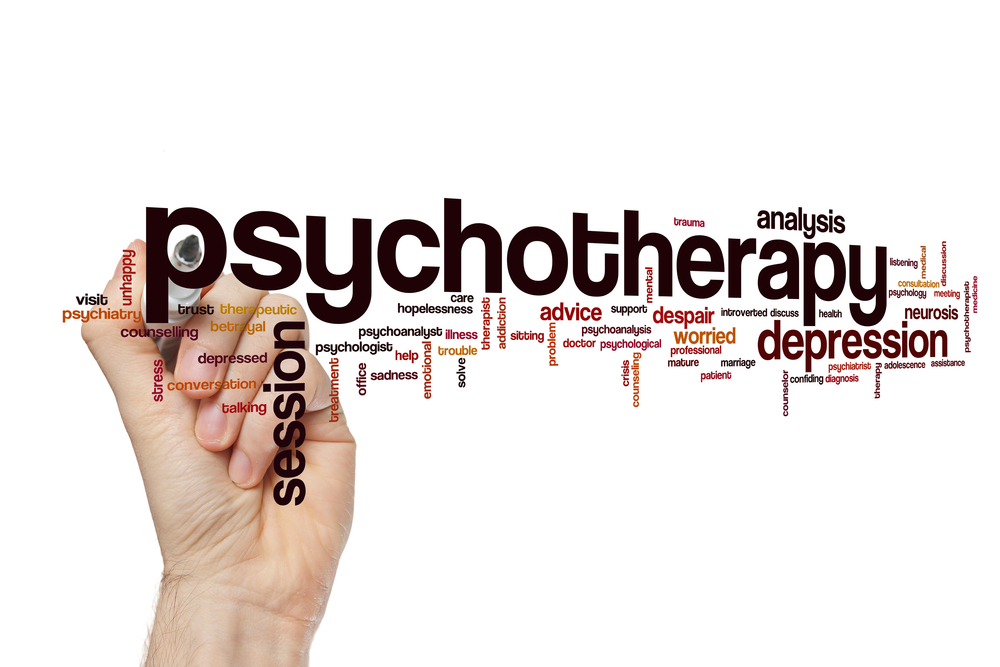Psychotherapy is a general term used for treating mental health problems by talking with a psychiatrist, psychologist, or any other mental health provider. During psychotherapy treatment, patient learns about his moods, thinking conditions, feelings, thoughts, and behavior. With psychotherapy one can learn how to take control of his/her life and respond to the challenging situations with healthy coping skills.
There are many types of psychotherapy available, each with its own approach. The type of psychotherapy treatment that’s right for you depends on your individual situation. Psychotherapy is also known as talk therapy, counseling, or psychosocial therapy.

Also Read: Common and Dangerous Eye Health Risks and Tips to handle them
Why it’s done
Psychotherapy is helpful in treating depression or other mental health problems, including:
- Anxiety disorders, such as post-traumatic stress disorder (PTSD), phobias, panic disorder, or obsessive-compulsive disorder (OCD),
- Addictions, such as drug dependence, alcoholism, or compulsive gambling
- Mood disorders, such as bipolar disorder or depression.
- Personality disorders, such as dependent personality disorder, or borderline personality disorder
- Eating disorders, such as bulimia or anorexia
Not everyone who benefits from psychotherapy treatment is diagnosed with a mental illness. Psychotherapy helps with a number of life’s stresses and conflicts that may affect anyone. For example, it can help you:
- Relieve stress or anxiety due to work or other situations
- Resolve conflicts with your partner or someone else in your life
- Cope with major life changes, such as divorce, death of a loved one or the loss of a job
- Come to terms with a serious physical health problem, such as cancer, diabetes or long-term (chronic) pain
- Learn to manage unhealthy reactions, such as passive-aggressive behavior or road rage.
- Recoveryfrom sexual or physical abuse or witnessing violence
- Cope with sexual issues, whether they are due to psychological or physical cause
- Sound sleep, if you have trouble getting to sleep or staying asleep (insomnia)
In a few cases, psychotherapy can be as effective as medications, such as antidepressants. However, depending on your medical situation, psychotherapy alone wouldn’t be enough to ease the symptoms of a mental health condition. You might also need medications or other treatments.
Some commonly used therapies for treating depression or bipolar disorder?
- Interpersonal therapy (IPT)-
Interpersonal therapy was originally developed to treat depression. It has been adapted for bipolar and other disorders. This therapy is time-limited and goal-oriented. It addresses a person’s symptoms, social relationships, and roles. The patient and therapist examine the current and past relationships. It doesn’t try to change the personality, but rather to teach new skills that can help to lessen the symptoms. An IPT therapist is an active supporter of the patient on his/her wellness journey. The therapist does not assign any homework but may encourage a patient to engage in the social activities.
- CBT – Cognitive behavioral therapy
Cognitive-behavioral therapy is a combination of two therapies. The first one is cognitive therapy (which majorly involves examining how thoughts affect the emotions) and the 2nd one is behavioral therapy (which involves changing a person’s reactions towards challenging situations). Cognitive-behavioral therapy is goal-oriented and works great when the patient takes part actively. One aspect of CBT helps the patient to recognize the automatic thoughts or core beliefs, which contribute to negative emotions. The behavioral therapy takes place when the patient has a more stable state of mind. The patient can then take actions that help him or her move closer to planned goals or objectives. Therapist assigns homework to the patient/s in CBT. It includes reviewing notes or tapes of the therapy session, journaling, trying a new approach to any old problem. There can also be exercises to make a patient more aware of his or her own thoughts and actions without judging them.
Also Read: Remedies to Overcome the Situation of Erectile Dysfunction
The most important parts of any type of therapy include partnership, goals, communication, collaboration, understanding, trust, and action. Successful therapy can help a patient change his/her thoughts, perceptions, beliefs, actions, and moods.


